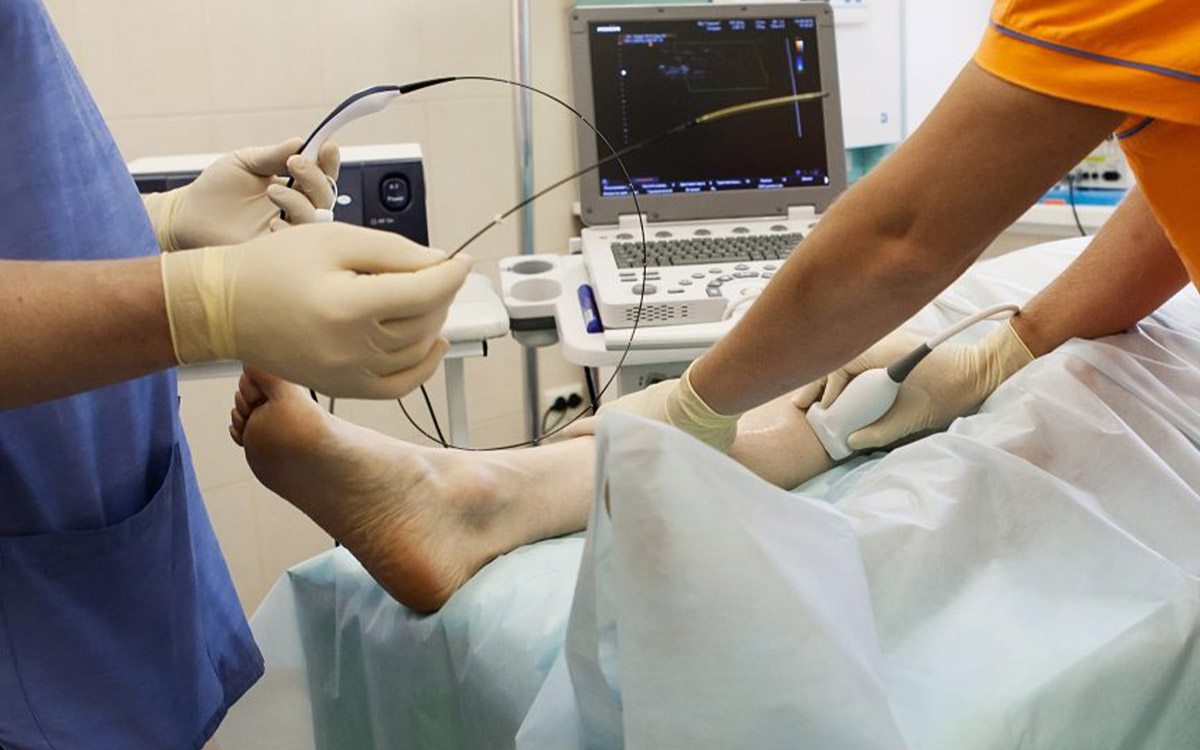Assoc. Prof. Dr. İlker Kiriş
Cardiovascular Surgery

The laser is simply defined as the focused light beam. The laser has many different uses and the leading field is medicine. In the field of medicine, especially the laser treatment of varicose veins is one of the most applied treatment methods.
As part of the laser varicose vein treatment, the laser heat disrupts the vascular structure and leads to a wound in the tissue. This scar tissue causes the vein to close and prevents the blood from entering the vein, and thus causing the vein to close. It becomes a cord without any blood flow in the closed vein.
The endovenous laser ablation treatment is a non-surgical varicose vein treatment method aimed at treating venous insufficiency that leads to varicose veins. The ablation is the process of creating tissue damage and closing the vein through the heat energy applied on the inner wall of the superficial vein. As part of this treatment method, the laser fiber is used to close the vein without any skin incision. The purpose of this procedure is to restore the venous insufficiency caused by the backflow of blood in the superficial vein in the leg. This technique could restore the varicose veins.
You should tell your doctor if you are allergic to all medications you are taking, including herbal supplements and especially local anesthetic drugs. Wear comfortable and loose clothing. Do not apply body lotion or cream on your legs on the morning of the procedure. You will be discharged on foot after the procedure. Besides, it is recommended not to drive after discharge. It will be more appropriate for a relative or friend to drive you home after your procedure.
The procedure is performed under local or sedative anesthesia and ultrasonography. The laser fiber is inserted through the needle hole into the knee joint or lower superficial veins. No skin incisions are made. The catheter tip is inserted into the vein up to the groin level. The cold serum injection, "tumescent anesthesia," is applied around the vein. While delivering heat energy with a laser fiber, the fiber is pulled back in a controlled manner. Thus, the vein is closed. The procedure is almost painless. After the treatment, the patient can walk immediately and can be discharged after about one hour. He/she can return to work after about two days, and the recovery period is usually very short.
After treatment, patients are recommended to wear compression stockings for two weeks. Outpatient clinic control examination and leg vein ultrasonography are required in the first week, first month and sixth month after discharge to evaluate the patient’s general situation and the treatment success.
In addition to these findings, if the patient has complaints about pain, edema and discoloration of skin in his/her relevant leg or widespread varicose veins.
Among the possible side effects of intravenous laser treatment of varicose veins are allergic reactions, bruising, leg pain, swelling, or palpable mass. However, these side effects usually disappear within a few weeks. There is also a risk of deep vein clots (deep vein thrombosis) and nerve damage, although theoretically extremely rare. Since venous insufficiency and varicose veins are a progressive and chronic process, thin varicose veins may rarely occur in different parts of the leg after treatment. It is a natural reaction of the body. Therefore, regular follow-up with ultrasound is recommended annually after treatment.
The more intravenous laser experiences your doctor has, the less risk you will take. As a result, the operation must be performed by a physician experienced in varicose veins. You can talk to Assoc. Prof. Dr. İlker Kiriş about how often these side effects occur after they are applied and get an idea.
Intravenous laser treatment or "endovenous laser ablation" procedure has been applied since about 2003, and it is a method with proven effectiveness and reliability. It is found one year after the endovenous laser treatment that the veins processed at a rate of 97-99% are closed according to ultrasonography examinations for control purposes. In other words, this non-surgical varicose treatment method is successful in 97-99 out of every 100 patients. If endovenous laser therapy cannot close a vein, you may very rarely need a second treatment. You can consult Assoc. Prof. Dr. İlker Kiriş regarding endovenous laser treatment.
The prices for laser treatment for varicose veins in Izmir vary depending on the condition of the person to be treated. Factors such as the region to be treated, vascular structure, pre-treatments to be applied before and after the therapy, number of sessions, and how many of these stages are covered by the insurance determine the treatment fee you will pay. It would be best to consult your doctor for comprehensive information.

